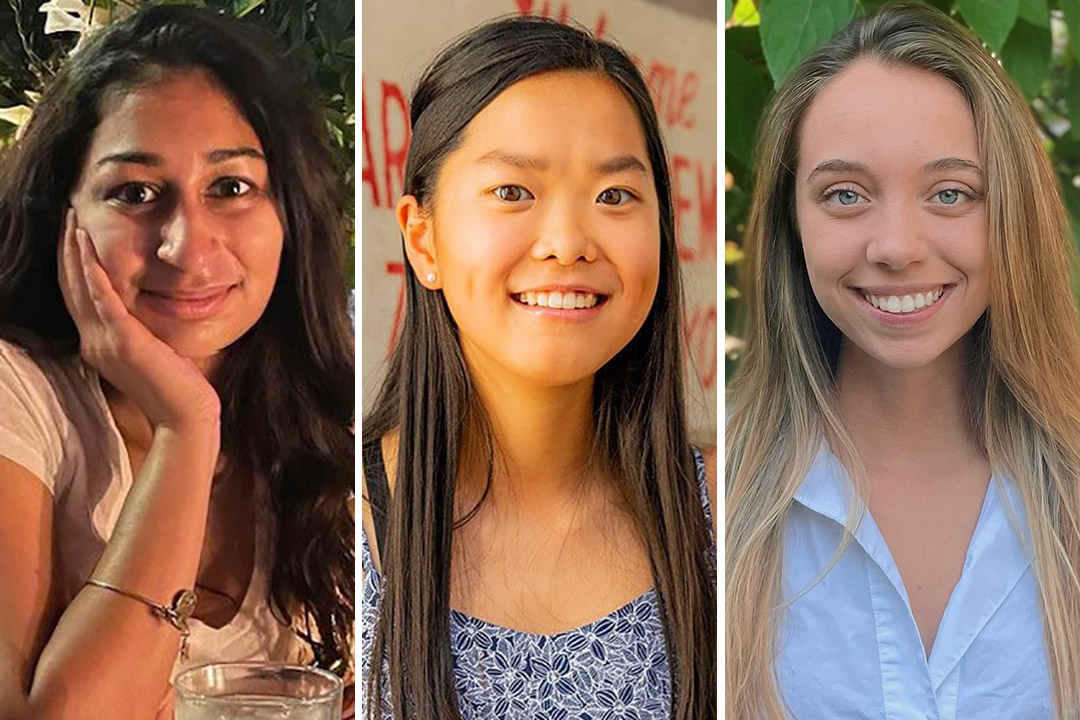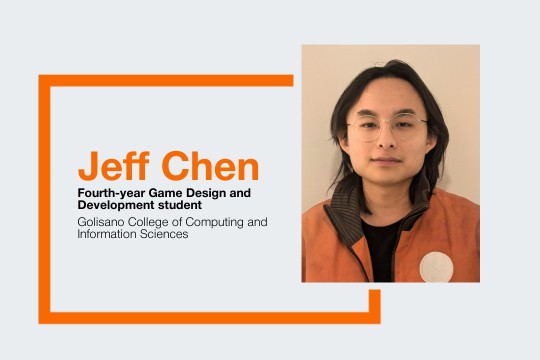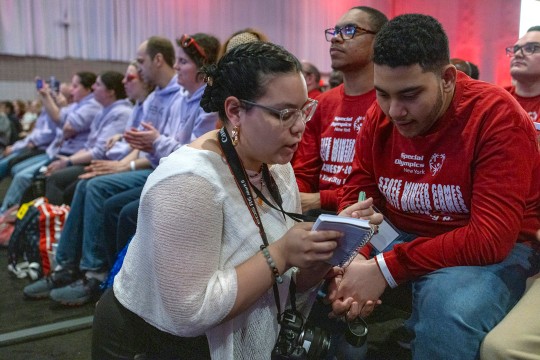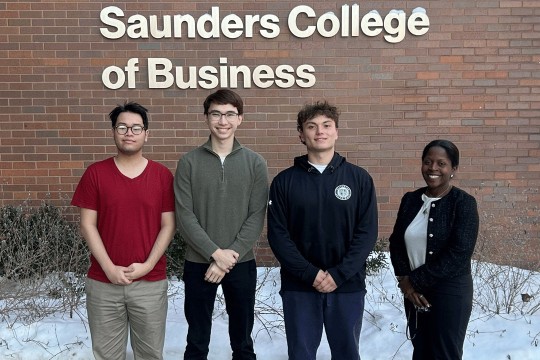Dozens of Honors Program students present Saturday
Left to right: Swathi Jacob, Bo Allaby and Sarah Henretta will be among the nearly 60 Honors Program students presenting their research projects Saturday at the Honors Research and Creativity Symposium in Gosnell Hall.
Attitudes about the COVID-19 vaccine, how sleep and age can affect memory, and how bodily secretions impact wounds are just three of the varied subjects to be discussed Saturday at the Honors Research and Creativity Symposium.
Nearly 60 students in the Honors Program will be on hand to discuss their research, some of which has been going on for more than a year. Poster presentations are from 9 a.m. to noon on Level A of Gosnell Hall, and live presentations will take place throughout that time on the first, second, and third floors.
The symposium is free.
Swathi Jacob is using current events to research a subject involving her major, biomedical sciences.
“I’m delving into how COVID-19 has affected the U.S. health care system and examining the different components of it, such as insurance, health care disparities, telehealth, and I’m looking into the stakeholder analysis of the COVID-19 vaccine, the pros and cons of it,” she said. “What would make a person take vaccines or not? Do people trust vaccines? What are their inherent beliefs? And show common myths and proven facts to see if it’s possible to change an anti-vaxxer’s mind.”
Part of being in the Honors Program is being involved in community service. Jacob, of Southington, Conn., serves as the Honors Program Council vice president, and also volunteers for RIT Ambulance.
“The Honors Program brings a community of intellectual students together who help me stay on the right track,” she said. “They also have a core of service, too. I really want to be involved in the community.”
Bo Allaby, a second-year psychology major from Colorado Springs, Colo., is displaying a poster explaining how sleep quality and age differences impact memory.
“We can all agree about the importance of sleep, as it plays a major role in our everyday functioning, such as memory, which concerns how we encode, store, and retrieve information,” Allaby said. “Yet, in this era of cellphones and hectic schedules, so many of us struggle to get enough good rest, and poor sleep quality may be linked to impaired everyday memory performance. This is essential to know, especially as we grow older.”
Allaby has volunteered in Colorado for an organization that provides groceries and basic necessities to individuals and families in need. Locally, she has volunteered at the Days for Girls organization, which creates and distributes hygiene kits to women around the world.
And Sarah Henretta, a fifth-year mechanical engineering student from Fairport, N.Y., plans to speak on her year-long investigation on the effects that extracellular vesicles (which are secreted by cells in the body) of varying concentrations have on healing wounds.
Henretta said she has enjoyed her five years in the Honors Program “because it encourages you to take classes that you wouldn’t normally take, such as extended curriculum classes.” She said she also was encouraged to participate in community activities. She volunteered as a coach for a town basketball team for young adults with special needs.
“It makes me try to do new things and put myself out there,” she said.
This year, 765 students are enrolled in RIT’s Honors Program, which is designed around three basic ideals of leadership, scholarship, and citizenship. Students are invited to join upon entering their freshman year or during their course of enrollment. They must meet academic requirements including maintaining at least a 3.5 GPA and be active in community service or leadership activities.
Honors students can enroll in classes early, take courses with peers, and may participate in a wide range of activities throughout the year, including field trips, social events, and community service projects.













